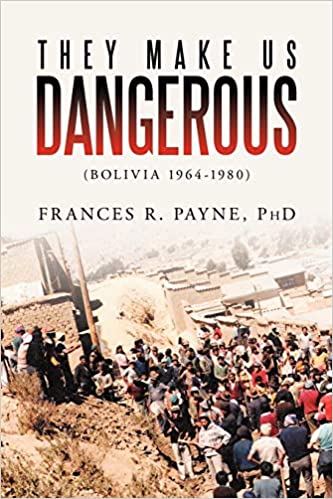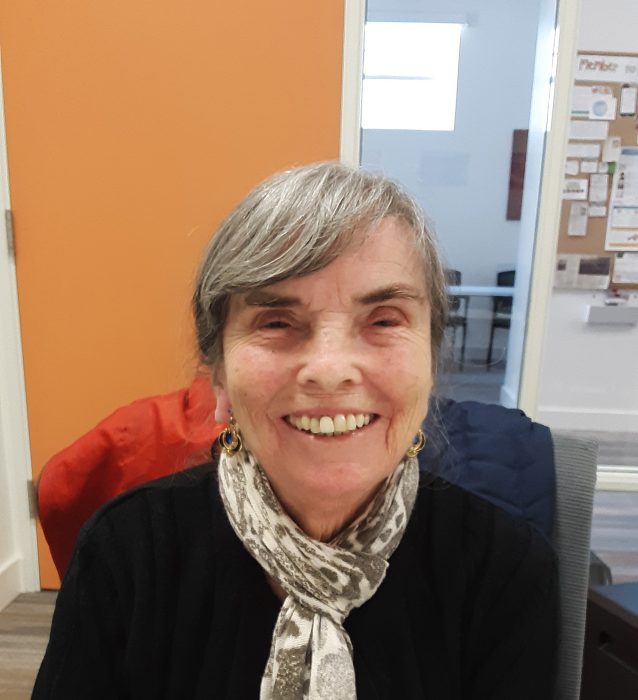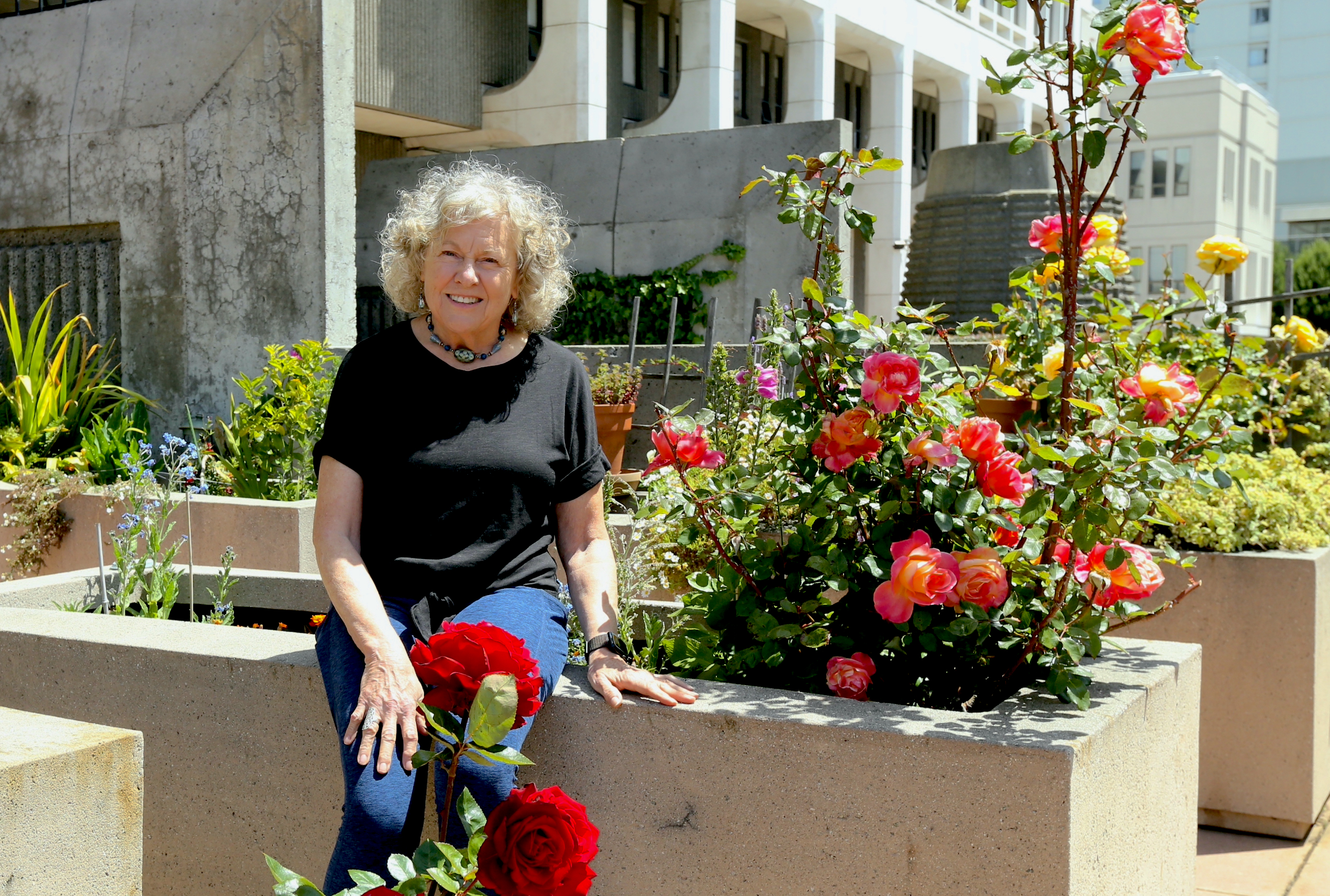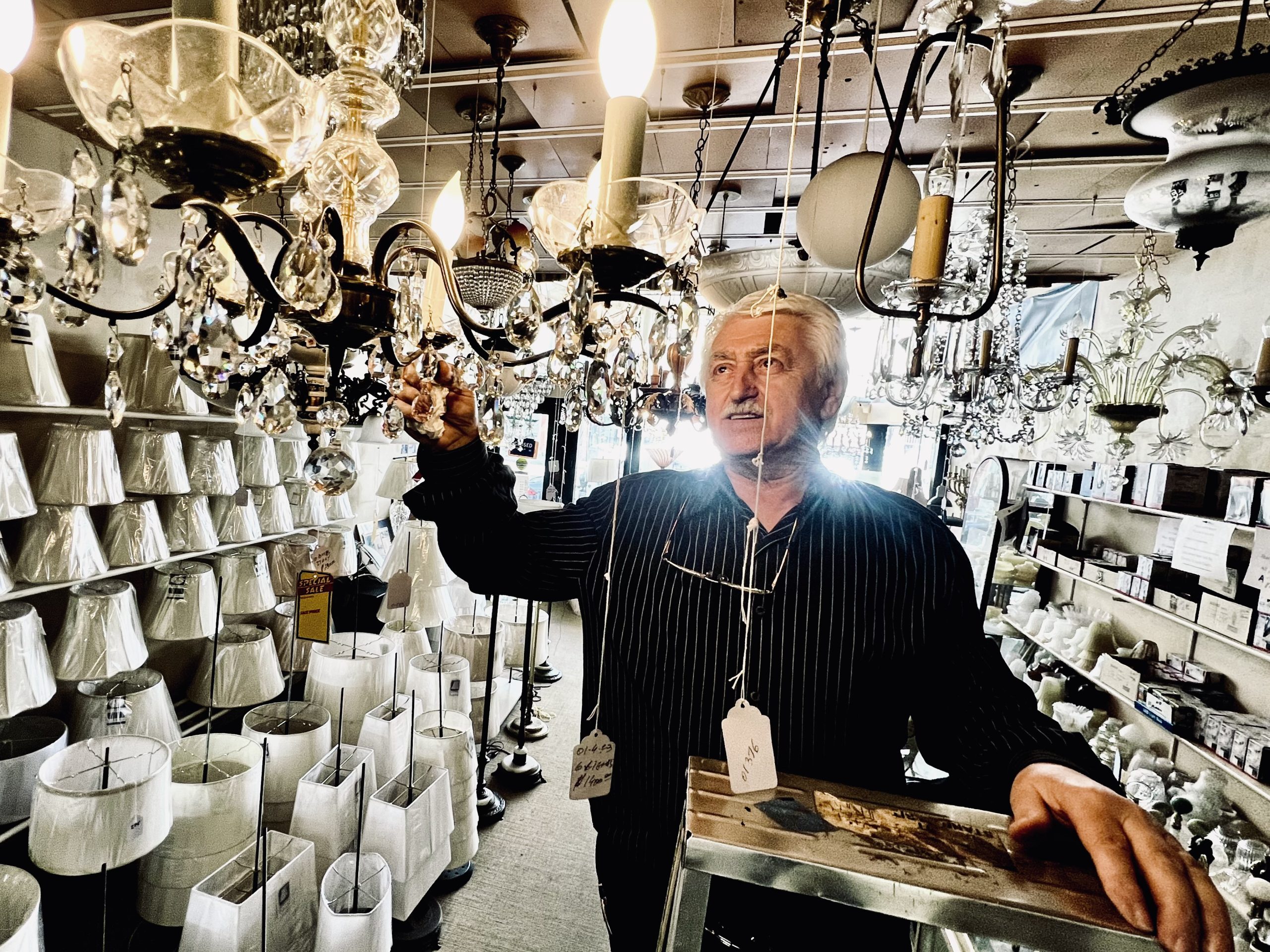A Pope’s order reroutes a nun’s predictable routine: From parish schools to Third World deprivation and revolution
When she was 30, Frances Payne’s life was orderly, predictable and sheltered. She was a Catholic nun, teaching second and fourth graders in her hometown parish in Detroit. But her life took a radical and unexpected turn when she was ordered by the Church to serve in La Paz, Bolivia.
Now 87, Payne smiles as she reflects on that time and how naive she was. “I thought (Bolivia) was in Africa,” she said. “I was scared and intrigued. I did not know this, but I was on my way to become part of the history of a country and a church, both poised on the brink of revolution.”
Payne ultimately became an organizer, builder, researcher and author, spearheading humanitarian and research projects in Achachicula, an impoverished region of Bolivia. She and her sister nuns chose to live simply, with as few comforts as their neighbors.
Her life took another radical turn in 1971 when she decided to leave the order. She continued to teach in Bolivia and eventually met and married a Bolivian journalist. When her husband was threatened with death by the military government, the couple moved to San Francisco, where they worked, started a small business.

In 2012, she published her memoir, “They Make Us Dangerous (Bolivia 1964 to 1980),” a personal account of the Bolivian people’s fight against dictatorship.
Payne grew up in Detroit with three older brothers. For most of her childhood, she was the only female in the household. Her mother died of multiple sclerosis when she was five. Her father, who never remarried, worked as a debt collector for a local department store. “Pop worked for a commission, and he didn’t earn much. One week his pay envelope had only three cents in it.
Steeped and schooled in Catholicism from childhood and encouraged by her teachers, Payne became a nun when she was 17, joining the order of the Convent of Dominican Sisters.
“The one thing that pushed me over (to joining the order) was my reading of `The Seven Storey Mountain’ by Thomas Merton, the American monk and social activist who was known as Father Louis. Merton’s story of his own conversion and his spiritual journey was so compelling.”
Payne entered the convent in 1952 and taught in Racine, Wis., and Detroit. “I liked teaching and did a good job,” she said.
Becoming ‘Madre Ruth’
But everything changed in 1964. Pope John XXIII had requested that all U.S. religious orders send 10 percent of their members to serve in South America. There was a meeting with the Mother Superior at which Payne was told that she and three other sisters would be going to La Paz. Payne would complete her education in Latin American studies and her dissertation on Bolivian university women and their cultural values.
She remembers little of the send-off on that Sunday morning. “Each one of us was given a small missionary cross to remind us of the sacrifices we would have to make,” Payne said.
Once in Bolivia, she became known as “Madre Ruth” and focused on what she knew: education, training and positive reinforcement.
“I organized classes for rural schoolteachers. We had prepared for around 100 rural teachers but more than 500 came. There were few materials for this venture: stones and grains were used for arithmetic; a stick used to write in the dirt; reading was taught from labels on food products. ‘
Before long, the classes grew. A thousand teachers registered the following year and the year after that, two thousand, she said. “They returned to their schools with a few new ideas. And I visited the schools in the remotest of locations to cheer on these ambitious educators.”
She lived in a house with electricity but no water. “A deeply spiritual foundation has to culminate in action and choices. And so, we chose to live as did the people in a very poor area without the usual comforts,” Payne said.
Fights over water
There was a communal trek to the public water spigot every day and a small uprising often broke out when the spigot went dry.

“And then we were asked to pay five pesos a month for using the public spigot, which we [citizens of Achachicala] had installed ourselves. We could use it only for an hour in the morning and another in the afternoon. I learned to survive on four buckets a week.”
Payne eventually helped with the start-up of a clinic, a hospital remodeling and community water projects, and occasionally taught at the University of San Andres. She handled many research assignments to determine critical needs and build consensus. Over the years, she started 16 creative educational centers in La Paz and Santa Cruz.
By 1971, Payne was ready to leave the order. Her departure was prompted, in part, by a desire for financial independence and a chance to make her own way in the world. She stayed in Bolivia, continuing to work with the community.
In 1974, the sisters she had worked with went their separate ways, so she had an extra room to rent. That’s when Enrique Bachinelo arrived. He was a journalist, lawyer and social justice activist who publicized and aided the struggles of miners, factory workers and students.
He and Payne married in 1979, a tumultuous era in Bolivian history. The country was torn as a bloody upheaval raged between the poor and the military-backed ruling class.
Bachinelo’s name appeared on a death list circulated by the military. Arrangements were made for his exile, and he flew to Mexico. It was 42 days before he and Payne were reunited in San Francisco. They stayed here and lived in Glen Park for over 30 years.
Flower power
Bachinelo opened Bolivian Imports in 1986 in the Castro district and the couple ran it for five years. Payne worked as a Spanish-language court interpreter and later landed a mid-management position for a large janitorial company.
“I got to use my Spanish. Constant phone calls, application processing, human resources work and the complaints- galore. One day I got a frantic call: a wastepaper basket had been placed on the wrong side of someone’s desk,” she said. Although it did involve a bruised knee, she added, “after Bolivia, this seemed a bit trivial.”
It’s work that’s not always appreciated. “Janitors are like flies on the wall. Whenever there’s a party or a mess, they’re the unsung mopper-uppers. They see a lot! I have a deep respect for them.”
Bachinelo died in May 2021. “Missing him is harder than coping with Covid,” Payne said.
These days she’s busy translating her book into Spanish and doing a little gardening. She said her next writing venture will be called “Lilac Stories,” a name she hit on when her brother planted 70 lilacs in her yard, some of which she sells to Noe Valley florists or on the street. It will tell stories told to her by people who buy her flowers
Payne said she views herself as a “citizen activist. My vision and vague ideals became much clearer in Bolivia. My real education began then. I saw stark poverty alongside indifference and raw exploitation. I started to understand how things got that way and what words like ‘mission’ and ‘commitment’ really meant. And this message still holds its meaning for me today.”






Susan Harmon
What a fascinating, and inspiring woman. Thank you for the look inside your life.